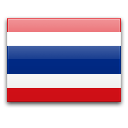Typical Signs and Symptoms of a Heart Attack
A person experiencing a heart attack may exhibit the following signs and symptoms:
- Chest discomfort: Most heart attacks involve discomfort in the center of the chest that lasts more than a few minutes or that goes away and comes back. It can feel like uncomfortable pressure, squeezing, fullness, or pain.
- Discomfort in other areas of the body: Discomfort may also appear in other areas of the upper body. usually in one or both arms, the back, neck, jaw, or stomach.
- Shortness of breath: Difficulty breathing may occur, either with or without chest discomfort.
- Breaking out in a cold sweat: Profuse sweating, often described as a cold sweat, may develop during a heart attack. This may be accompanied by pallor, or paleness of the skin.
- Dizziness: Feelings of lightheadedness or dizziness may accompany other symptoms.
- Nausea and Vomiting: Some individuals may experience nausea and vomiting in addition to other symptoms of a heart attack.
- Fatigue: Unexplained fatigue or weakness may appear.

NOTE: Women, the elderly, and those with diabetes may not experience traditional chest discomfort during a heart attack. Look out for signs like heartburn, discomfort in the back, jaw, neck, or shoulder, as well as nausea or vomiting.
Risk Factors
It's important to note that while heart attacks are uncommon in children due to their generally healthy hearts. They can occur in adults with underlying medical conditions or risk factors:
- high blood pressure,
- cholesterol,
- diabetes,
- obesity,
- smoking,
- stress, etc.
Therefore, it's crucial for individuals with such conditions to do regular medical check-ups.
Admitting Discomfort
Many people won't admit or deny that their discomfort may be caused by a heart attack.
People often say the following:
- "I am too healthy."
- "I don't want to bother the doctor."
- "I don't want to frighten my spouse."
- "I will feel silly if it is not a heart attack."
NOTE: If you suspect someone is having a heart attack, act quickly and call your local emergency number right away. The first minutes of a heart attack are the most important. That's when a person is likely to get worse or even die. Don't hesitate, even if the person doesn't want to admit discomfort.
Call Emergency Medical Services
Many people can be given treatments in the first hours after a heart attack that can reduce the damage and improve recovery. Therefore, it's important to recognize the signs of a heart attack quickly and get immediate medical care.
NOTE: Ideally, the patient should reach the hospital within a maximum of 3 hours from the initial onset of signs and symptoms. This prompt response greatly enhances the likelihood of effective treatment and a more favorable outcome.
[1]. WHO, "The top 10 causes of death".
Heart Attack Response: Critical First Aid Steps
Follow these first aid action steps if someone has any signs of a possible heart attack:
- Make sure the scene is safe: Before approaching the victim, assess the scene for any potential hazards to ensure your safety and the safety of others.
- Ask permission to help: Obtain the person's consent before to help.
- Position for comfort: Help the person find a comfortable position that aids breathing.
- Reassure the person: Make sure the person stays calm and rests.
- Ask them what the problem is: If the person can talk, inquire about the nature of their issue, ask them if they have any pre-existing medical condition.
- Look for any medical information jewelry: This tells you if the person has a serious medical condition.
- Call for help: Call your local emergency number (1.6.6.9 in Thailand) immediately. Ask someone to get the first aid kit and AED, if available.
- Help them take their medication: If the person is on medication and requires it, assisting them in taking it promptly can help improve their condition. If the person has no allergy to aspirin, no serious bleeding, and no signs of a stroke, have the person chew and swallow 1 adult or 2 low-dose aspirins (maximum 325 mg).
- Monitor and stay with the person: Remain with the person experiencing a heart attack until emergency help arrives. If the person becomes unresponsive, be prepared to give CPR.

NOTE: Promptly administered aspirin during a heart attack inhibits clotting, reducing the risk of blockage in coronary arteries, restoring blood flow, and minimizing tissue damage.
Caution
What you should NOT do during a heart attack:
- 🚫 Do not take the patient to the hospital yourself. Wait for the ambulance.
- 🚫 Do not give aspirin or any medication if you feel uncertain or uncomfortable doing so.
- 🚫 Do not wait to call EMS and get treatment.
NOTE: If the first aid provider is uncertain or uncomfortable with giving aspirin, the first aid provider should not encourage the person to take aspirin.
A Heart Attack can Lead to Cardiac Arrest.
Typically, during a heart attack, the person is still responsive, and the heart continues to pump blood. But the longer a person with a heart attack goes without treatment, the greater the possible damage to the heart muscle, and they may collapse.
Occasionally, the damaged heart muscle triggers an abnormal rhythm that can lead to sudden cardiac arrest. So be prepared to deliver CPR.
NOTE: If you recognize the signs and symptoms of a heart attack, you must immediately call Emergency Medical Services (1.6.6.9 in Thailand) as this is a life-threatening medical condition. Make sure the person stays calm and rests. It's best not to drive them to the hospital. Stay with them until someone with more advanced training arrives and takes over.
Conclusion
Recognizing the signs of a heart attack and acting swiftly can make a critical difference in outcomes. With cardiovascular disease being the leading cause of death globally, awareness and preparedness are essential.
Regular medical check-ups, especially for those with underlying conditions, and knowing the proper first aid steps can save lives.
Remember, in the event of a heart attack, time is of the essence. Call emergency services immediately and provide the necessary first aid until professional help arrives. By staying informed and ready, we can better protect ourselves and our loved ones from the devastating impact of heart attacks.
Join our E-Learning course and Get your First Aid CPR AED Certificate
If you wanna learn how to respond to a heart attack amongst many other medical emergencies, you are welcome to join our online First Aid CPR AED course at first aid online courses. You will receive a certificate which is valid for 2 years.
You can also join our American Heart Association® First Aid CPR AED course at our academy in Bangkok. You will receive an international certification that is valid for 2 years. For more information about this course please click here or email us at sales@bangkokfirstaid.com.



